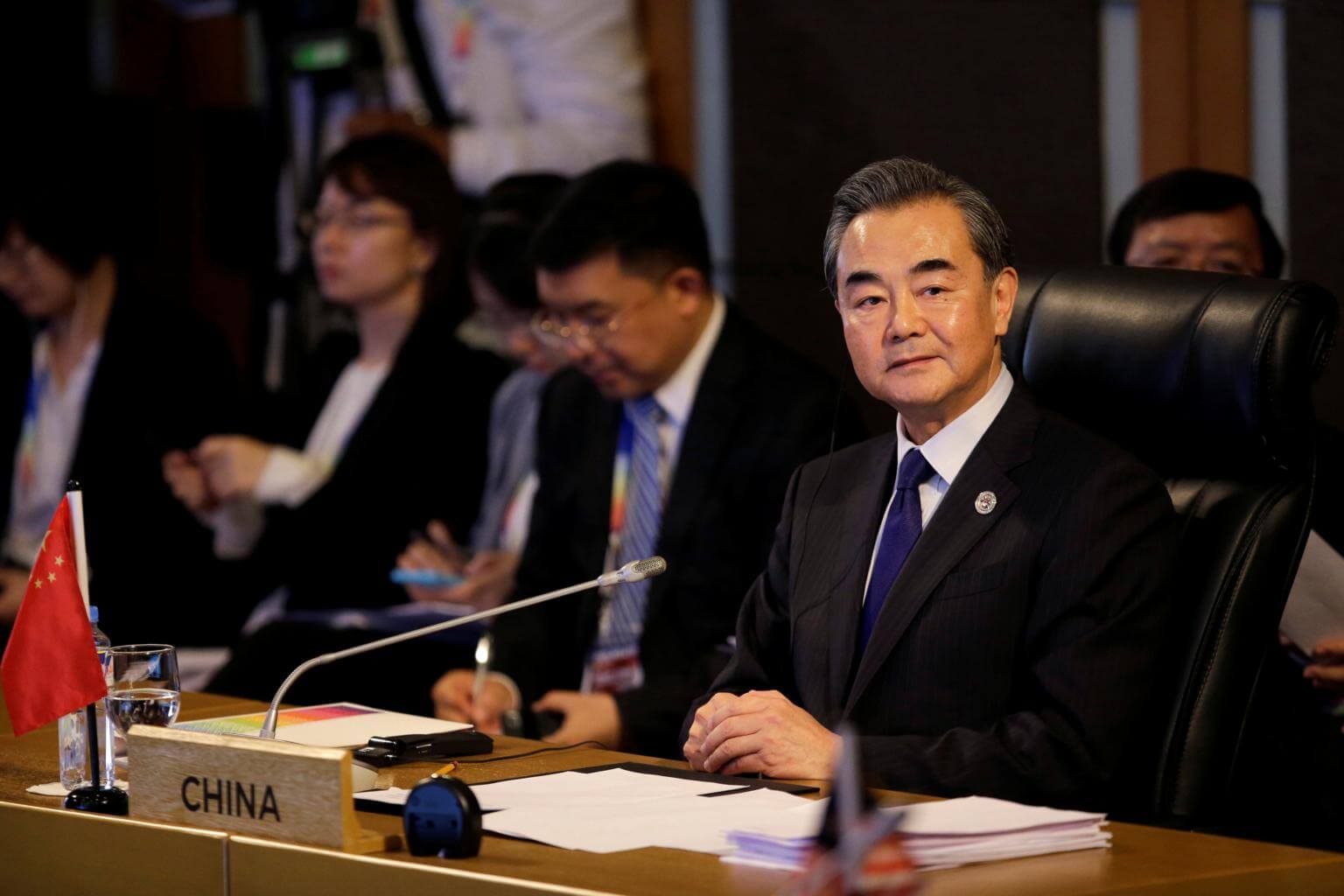China's Foreign Minister cancels meeting with Vietnamese counterpart over South China Sea tensions
Sign up now: Get insights on Asia's fast-moving developments

Chinese Foreign Minister Wang Yi cancelled the meeting with his Vietnamese counterpart Pham Binh Minh, reportedly due to a spat over the South China Sea.
PHOTO: REUTERS
Follow topic:
HANOI (Bloomberg) - Chinese Foreign Minister Wang Yi cancelled a scheduled one-on-one meeting with his Vietnamese counterpart in Manila at the last minute on Monday (Aug 7) due to a spat over the South China Sea, according to people familiar with the situation.
China was upset over the wording of a communique released by foreign ministers of the Association of South-east Asian Nations on Sunday night that expressed concern over land reclamation on disputed islands, according to the people, who asked not to be identified because the information isn't public. China saw Vietnam as pushing for that language to be included in the statement, they said.
The statement said that some of Asean's 10 foreign ministers expressed concern "on the land reclamations and activities in the area, which have eroded trust and confidence, increased tensions and may undermine peace, security and stability in the region".
Vietnam Foreign Minister Pham Binh Minh is among top diplomats from more than 20 countries attending meetings in Manila this week.
A spokesman with the Chinese delegation suggested that the one-on-one meeting wasn't the only opportunity where the ministers could have had discussions.
The two both participated in other multilateral meetings in Manila, including one between China and the 10 Asean ministers.
"The two have already met," said the spokesman, without making further comment. Vietnam's Foreign Ministry didn't immediately respond to faxed questions about the meeting.
Tensions between China and Vietnam have increased in recent months over disputed territory in areas of the South China Sea that are rich in oil and gas. In June, a Spanish oil company reportedly stopped drilling off of Vietnam's coast after threats from China.
China's efforts to assert its dominance over the South China Sea, one of the world's busiest shipping lanes that carries more than US$5 trillion (S$6.81 trillion) in annual trade, have in the past angered South-east Asian nations with competing claims such as Vietnam and the Philippines.
The waterway has become a flashpoint in a broader tussle for regional influence between China and the US in Asia.
China has used land reclamation to build up islands and construct airports to back its claim of much of the waters off its coast.
In 2016, an international court rejected China's bid to secure rights to more than 80 per cent of the South China Sea.
The BBC reported last month that Vietnam had ordered Repsol SA, a Madrid-based oil-and-gas company, to halt activities in the South China Sea after China threatened to attack Vietnamese bases in the Spratly Islands. The company confirmed last week that it had suspended drilling in Vietnam, without providing further details.
In a July 29 statement, Vietnam asked parties to respect its petroleum rights in the South China Sea. Asked whether China had ever pressured Vietnam to stop drilling, foreign ministry spokesman Lu Kang said that China has indisputable sovereignty over the Spratly Islands and urged against unilateral actions in the area.

